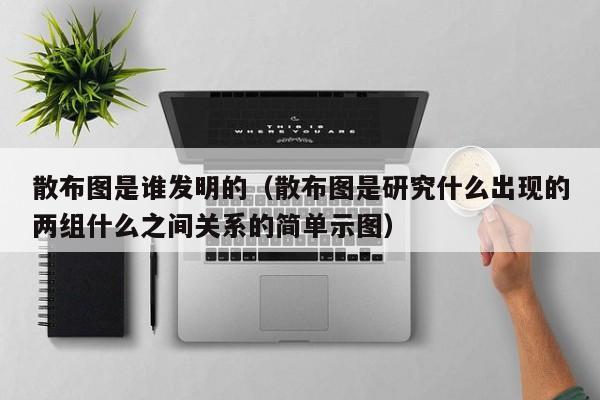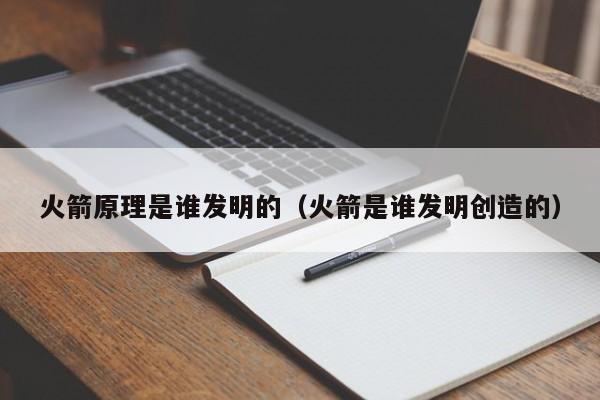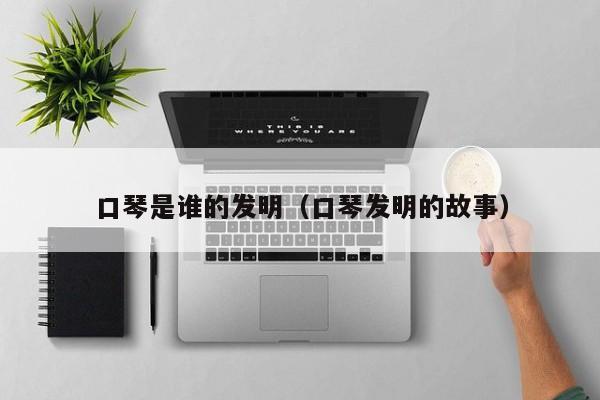本篇百科问答的知识要给大家谈谈has是谁发明的,以及hello是谁发明的对应的知识点,希望对学习有所帮助。
文章目录:
had been与has been用法有何区别?
had been是过去完成时,强调的是过去。
has been 是现在完成时,强调现在情况下完成的东西对现在的影响。
如何区分have been\has been\had been这三个时态?
现在完成时和过去完成时,是让很多英语学习者头痛的两个时态。
迷惑的时候去翻语法书,但是往往都是:一看就懂,一用就懵。
最近刚好有一个学生问到这个问题,既然这样我们就来好好掰扯掰扯吧!
在学习语法时,我们始终要记住一点,先有语言再有语法。所以无论语法看起来多么复杂,它始终是为了说、写或研究语言而服务的。而我们学习语法则是为了能说出或写出符合某种语言规则的句子。
1. 终极要义:无论是现在完成时或是过去完成时,它都是站在某个时间节点,对这个时间点之前所发生的动作进行陈述或总结。
所以当我们想要用这两个时态的时候,问一下自己,说话的当下我的时间节点是什么。是现在吗?那就用现在完成时;是过去吗?那就用过去完成时。
2. 现在完成时 - have/has been/been doing/been done
1)定义:现在完成时,该时态表现的是,某动作行为开始于过去但持续到现在或对现在产生影响。
它讲的是从过去到现在的事情,强调的是与“现在”的关系。是处在“现在”这个时间,对此之前发生的一个或多个动作进行描述。
2) 现在完成时 - have/has been
若使用现在完成时的主语为I/ You/ We/ They 或名词复数(Cars/ Children/ People),则使用have been;
They have been married for 23 years since 1997.
他们已经结婚23年了。
放到时间轴里,我们可以看到,他们于1997年结婚且持续到现在。所以,我们站在现在(now)这个时间点来陈述“have been married”,理解到的意思是他们再1997年的时候结婚了,并且现在还存在婚姻关系。
若使用现在完成时的主语为He/ She/ It 或名词单数(Car/ Child/ Person),则使用has been;
He has been to Japan three times, in 1993, 1995 and 2000, but he has never visited Hokkaido.
他曾去过日本三次,但他未到访过北海道。
放在时间轴里,我们可以看到,他曾经去日本三次,分别在1993、1995以及2000年。到访日本这个动作在过去发生了三次。所以我们可以站在现在(now)这个时间点来陈述“he has been to Japan three times”。
3)现在完成进行时 – have/has been doing
表示一个持续发生的动作(从过去到现在),动作通常仍会持续下去。
I have been watching movie for 2 hours/since 3pm.
我已经看了两个小时电影了(下午3点开始看)。
从时间轴我们可以看到,站在现在(now)这个时间点,对过去已经开始并且还在进行的“watching movie”看电影这个行为做出描述,我们可以说“I have been watching movie”,可以理解得到的意思是橡搜,我下午三点开始看电影,已经看了两个小时,接下来我还会继续看。
4) 现在完成时(被动语态)- have/has been done
要讲现在完成时的被动语态,首先要理解英语的被动语态,以及帆如毁知道如何将主动语态转换成被动语态,反之亦然。
英文里的被动语态中,主语为动作的承受者。
我态备们来看以下的主被动转换。
主动句
Thomas Edison invented the light bulb in 1879.
托马斯·爱迪生在1879年发明了电灯泡。
被动句
The light bulb was invented (by Thomas Edison) in 1879.
电灯泡(由托马斯·爱迪生)发明于1879年。
再来看一个现在完成时被动语态的句子:
That girl has been sent to the hospital.
那女孩被送到了医院了。
从时间轴里我们可以看到,被送去医院的这个女孩是动作的承受者,而站在现在(now)这个时间点,对“被送”这个已经完成的动作,我们可以进行描述“That girl has been sent to the hospital.”。
3. 过去完成时 - had been/ been doing/ been done
1) 定义:过去完成时,该时态表示的是,某个行为动作再过去某个时间点之前已经结束/完成。它讲的是过去的过去,强调的是与“过去”的关系。是处在“过去”的某个时间,对此之前发生的一个或多个动作陈述。必须要有过去的时间或动作来比较。
2) 过去完成时 – had been
当使用过去完成时的时候,无论主语是什么,我们都用“had been”。它强调的是在过去开始在过去结束。
The plane had already taken of when she arrived at the airport.
她到达机场的时候,这家飞机已经起飞了。
从时间轴我们可以看到,在“she arrived”之前,这架飞机已经“took off”,也就是说,飞机起飞这个事情发生在她到达之前,飞机起飞发生在过去的过去。
两个时间点past1和past2都在过去。而我们站在过去(在这个句子中是“she arrived at the airport”)这个时间点对“plane took off”这个动作进行陈述,就可以说是“the plane had taken off”。
3) 过去完成进行时 – had been doing
过去完成进行时表示,在过去某个时间之前一直持续的动作, 并且这个动作不会持续到现在。
It had been snowing for three days when we arrived.
在我们到达之前,这里下了三天的雪。
从时间轴我们看到,这场雪在过去的某个时间点开始并持续下了三天“was snowing for three days”,但是雪在我们到达这个地方“we arrived”之前已经停了。下雪开始于过去也停雪于过去。
两个时间点past1和past2都在过去。下雪是在过去某个时间段里持续发生的事情,但没有持续到现在。而我们站在过去(在这个句子中是“we arrived(here)”)这个时间点对“it was snowing for three days”这个事情陈述,就可以说是“it had been snowing for three days.”。
4) 过去完成进行时(被动语态)– had been done
过去完成时的被动语态表示,某件事情或动作在过去的某个时间点之前已经完成。常与by,before等引导的时间状语连用。
The classroom had been cleaned before the teacher came.
老师来之前,课时已经(被)打扫过了。
从时间轴我们可以看到,课室卫生“Classroom was cleaned”在老师来“teahcer came”之前已经完成。
而我们站在过去(在这个句子中是“teacher came(to the classroom)”)这个时间点对“classroom was cleaned”这个事情陈述,就可以说是“The classroom had been cleaned before the teacher came”。
4. 现在完成时(have been)与过去完成时(had been)的比较
现在完成时(have/has been),用来表示某个过去近期发生并对现在产生影响的事情或动作。
过去完成时(had been),用来表示在过去的过去发生的事情或动作,并且这个事情或动作不会对现在产生影响。
来看两个例子:
I have been working as a teacher for 7 years/ since 2013.
我当老师已经又7年了(还会当下去)。
I had been working as a teacher for 7 years when I quit my job.
在我辞去工作之前,我当老师已经有7年了(已经不当了)。
伞是谁在什么时候发明的是哪个国家的人发明的,用英语翻译
传说鲁班妻子云氏也是一位巧匠。
Legend ruban wife cloud's also a work.
《玉屑》上还记述,她是雨伞的发明者,第一把雨伞就是她送给丈夫出门给人家盖房屋时用的。
The jade dust "on, she is the inventor of the umbrella, the first umbrella is her husband to go out to somebody else's cover houses with.
"伞"字早有出现,她大概是造出了能撑合的伞. 是谁发明的雨伞?
"猜弊Umbrella" word appears early, she is probably created can stay close umbrella. Who invented an umbrella?
对这个问题一直众说纷芸。
To this problem has been kiom da hedos, tiom da opinios.
有的说,埃及人最早使用雨伞,早在公元前1200年,埃及(Egypt)的贵族们外出旅游时常常要奴隶(slave)为他们太穗顷族阳伞(parasol)。
Some said, the men of Egypt, the first to use an umbrella, as early as 1200 BC, Egypt (Egypt) gentry when you travel often to slave (slave) for they sun umbrella (parasol).
罗马人用伞遮挡地中海地区的阳光。
The Romans used the umbrella keep out the Mediterranean sun.
在中国,伞是公元前1000年由鲁班的妻子发明的,伞被称作“能移动的房屋”。
In China, an umbrella is 1000 BC by ruban wife invention, umbrella is called "can move house".
在英国,在18世纪才开始使用雨伞。
In the UK, in the 18th century began to use an umbrella.
佰纳斯 伞一度是女性的专用品,表示女人对爱情的态度。
Hundred's umbrella, was once a female designed products, said the woman to love attitude.
把伞竖起来,表示对爱情遥坚贞不渝;
An umbrella to stand up, said to the love remote undying devotion;
左手拿着撑乎凳开的伞,表示“我现在没有空闲时间”。
Left hand open umbrella, said: "I have no spare time now".
把伞慢慢晃动,表示没有信心或不信任;
Umbrella move slowly, said no faith or distrust;
把伞靠在右肩,表示不想再见到你。
An umbrella on the right shoulder, does not want to see you again.

英语是谁发明的
ORIGIN OF ENGLISH(当然是英国人发明的啦,欲知详情,请看下文,但我宁愿相信一门语言不是哪个人想发明就能发明出来的,大家觉得呢?)
We speak English but do we know where it comes from? I didn’t know until I started to study on this subject and I learned where it comes from and how it has developed.
The history of English begins a little after A.D. 600. The ancestors of the language were wandering in the forests of northern Europe. Their language was a part of Germanic branch of Indo-European Family.
The people talking this language spread to the northern coast of Europe in the time of Roman Empire. Among this people the tribes called Angels,Saxons,Jutes which is called Anglo-Saxons come to England. The first Latin effect was in that period. Latin effected the language with the merchants traveling the tribes. Some of the words taken from Latin are; kettle,wine,cheese, butter, cheap.
Also in the 14th century Rome Empire weakened because Goths attacked to Mediterranean countries of Roman Empire and Anglo-Saxons attacked to empire. On the other hand the Celtic tribes in Scotland and Wales developed. At the end in 410 the last roman emperor left the island to Celtic and Anglo-Saxons. Celtic and Anglo-Saxons fought for 100 years and Anglo-Saxons killed all the Celtics. In 550 Anglo –Saxons established England. During Roma Empire Latin wasn’t the native language of the kingdom because people in the country were talking Celtic.
When Anglo-Saxons became Christian in 597 they learned Latin. According to the effects to English , the history of the language divided in to three; Old English(7th century-1100), Middle English(1100-1450/1500), Modern English (1500-now). In some books Modern English is divided in to two Early modern (1500-1700) ,Late Modern (1700-now).
OLD ENGLISH
When England was established there were several kingdoms and the most advanced one was Nurthumbria. It was this period that the best of the Old English literature was written , including the epic poem Beowulf.
In the 8th century Nurthumbrian power declined , West Saxons became the leading power. The most famous king of the West Saxons was Alfred the Great. He founded and established schools, translated or caused to be translated many books from Latin in to English.
After many years of hit-and-run raids between the European kingdoms, the Norseman landed in the year of 866 and later the east coast of the island was Norseman’s. Norse language effected the English considerably. Norse wasn’t so different from English and English people could understand Norseman. There were considerable interchanges and word borrowings (sky,give,law,egg,outlaw,leg,ugly,talk). Also borrowed pronouns like they,their,them. It is supposed also that the Norseman influenced the sound structure and the grammar of English.
Old English had some sound which we don’t know have now. In grammar , Old English was much more highly inflected that Middle English because there were case endings for nouns, more person and number endings of words and a more complicated pronoun systems, various endings for adjectives. In vocabulary Old English is quiet different from Middle English. Most of the Old English words are native English which weren’t borrowed from other languages. On the other hand Old English contains borrowed words coming from Norse and Latin.
MIDDLE ENGLISH
Between 1100-1200 many important changes took place in the structure of English and Old English became Middle English. The political event which effected the administration system and language was the Norman Conquest. In 1066 they crossed the Channel and they became the master of England. For the next several next years ,England was ruled by the kings whose native language was French. On the other hand French couldn’t become the national language because it became the language of the court , nobility, polite society, literature. But it didn’t replace as the language of the people. English continued to be the national language but it changed too much after the conquest.
The sound systemgrammar wasn’t so effected but vocabulary was effected much. There were word related with goverment:parliment,tax, goverment,majesty; church word: religion, parson, sermon; words for food: veal, beef, mutton, peach,lemon,cream,biscuit; colors: blue, scarlet, vermilion; household words: curtain, chair,lamp,towel,blanket; play words: dance,chess,music,leisure,conversation; literary words: story romance, poet, literary; learned words: study, logic grammar,noun,surgeon, anatomy, stomach; ordinary words for all sorts: nice,second,very,age,bucket, final,gentel, fault, flower,count,sure, move, surprise, plain. (Clark, V.P. Eschholz, P.A. Rose ,A.F.; 1994;622 )
Middle English was still a Germanic language but it is different from Old English in many ways. Grammar and the sound system changed a good deal. People started to rely more on word order and structure words to express their meaning rather than the use of case system. “This can be called as a simplification but it is not exactly. Languages don’t become simpler , they merely exchange one kind of complexity for another”( (Clark, V.P. Eschholz, P.A. Rose ,A.F.; 1994;622 )
For us Middle English is simpler that Old English because it is closer to Modern English.
EARLY MODERN ENGLISH
Between 1400-1600 English underwent a couple of sound changes. One change was the elimination of a vowel sound in certain unstressed positions at the end of the words. The change was important because it effected thousands of words and gave a different aspect to the whole language.
The other change is what is called the Great Vowel Shift. This was a systematic shifting of half a dozen vowels and diphthongs in stressed syllables. For example the word name had in Middle English a vowel something like that in the modern word father;...etc. The shift effected all the words in which these vowels sounds occurred. These two changes produced the basic differences between Middle English and Modern English. But there are several other developments that effected the language. One was the invention of printing. It was introduced to England by William Caxton in 1475. After this books became cheaper and cheaper, more people learned to read and write and advanced in communication.
The period of Early Modern English was also a period of English Renaissance, which means the development of the people. New ideas increased. English language had grown as a result of borrowing words from French ,Latin, Greek.
The greatest writer of the Early Modern English period is Shakespeare and the best known book is the King Jones version of the BIBLE.
RECENT DEVELOPMENTS
In order to establish the language they develop a dictionary. The first English Dictionary was published in 1603. Another product of the 18th century was the invention of English Grammar. As English is replaced with Latin as the language of scholarship, it was felt to control the language.
The period where English developed most in the Modern English. In that period the people speaking that language increased too much. Now, English is the greatest language of the world spoken natively and as a second language. What will happen in the future? It’ll continue to grow , may be it will be the universal language.
Adapted from "A Brief History of English" by Paul Roberts
英语作文车,电话和电视是谁发明的发明出来有什么用,带翻译
The TV was invented by John Logi Baird of Scotland in 1925. People put John Logi Baird in London as an experiment "scan" a puppet television image as the birth symbol, so he was called "the father of television". However, not everyone thinks so. Because, also in that year, American Zworykin demonstrated his TV system to his boss in the westinghouse.
In China, the first TV appearance in 1958, was manufactured in Shanghai. First seen on the TV show no color, but now, we can see the color TV programs. With the development of science and technology, TV is more and more families have. Television has also been more and more public can watch movies and surf the Internet, for example. TV helps us more understanding of the news of the world. It can also entertain everybody, let the life of people rich, interesting. So television is a great invention that changed the world.
电视是由苏格兰人约翰·洛吉·贝尔德于1925年发明的.人们把约翰·洛吉·贝尔德在伦敦的一次实验中“扫描”出木偶的图像看作是电视诞生的标志,因此他被称做“电视之父”.但是,并不罩昌颂是所有人都是这么认为.因为,也是在那一年,美国人斯福罗金在西屋公司向他的老板展示了他的电视系统.
在中国,第一台电视出现在1958年,是在上海被制造出来的.最初的电视看到的节目没有颜色的,但是现在,我们可以看到彩迅闭色的电视节物郑目了.随着科技的发展,电视被越来越多的家庭拥有.而电视也有了越来越多的公能,例如:看电影和上网.电视帮助我们更快更多的了解世界各地的新闻.它还可以娱乐大家,让人们的生活丰富,有趣.所以电视是改变世界的伟大发明.
自己写的.
关于has是谁发明的和hello是谁发明的的介绍到此就结束了,不知道你从中找到你需要的信息了吗 ?如果你还想了解更多这方面的信息,记得收藏关注本站。
版权声明
本文仅代表作者观点,不代表百度立场。
本文系作者授权百度百家发表,未经许可,不得转载。












评论